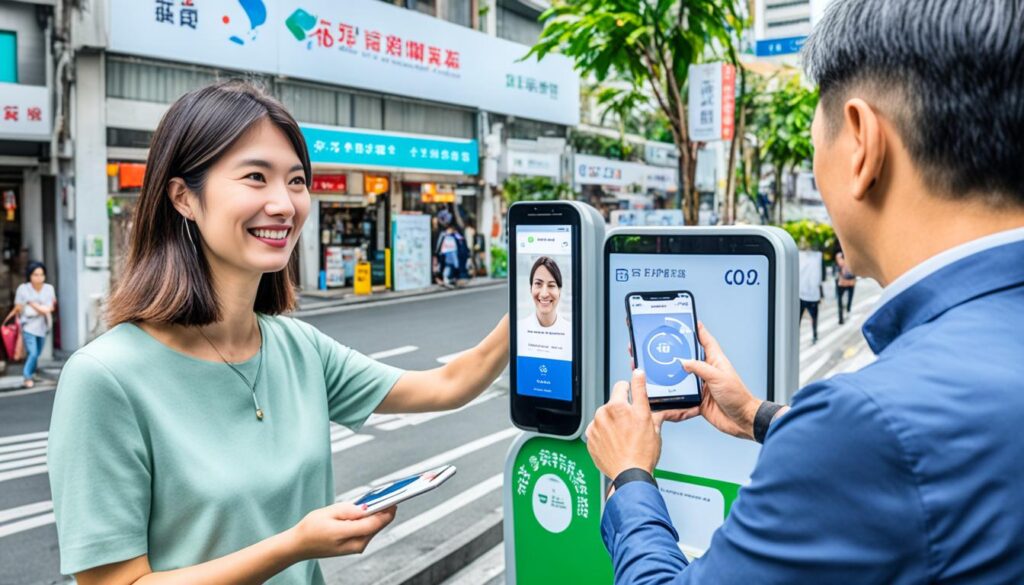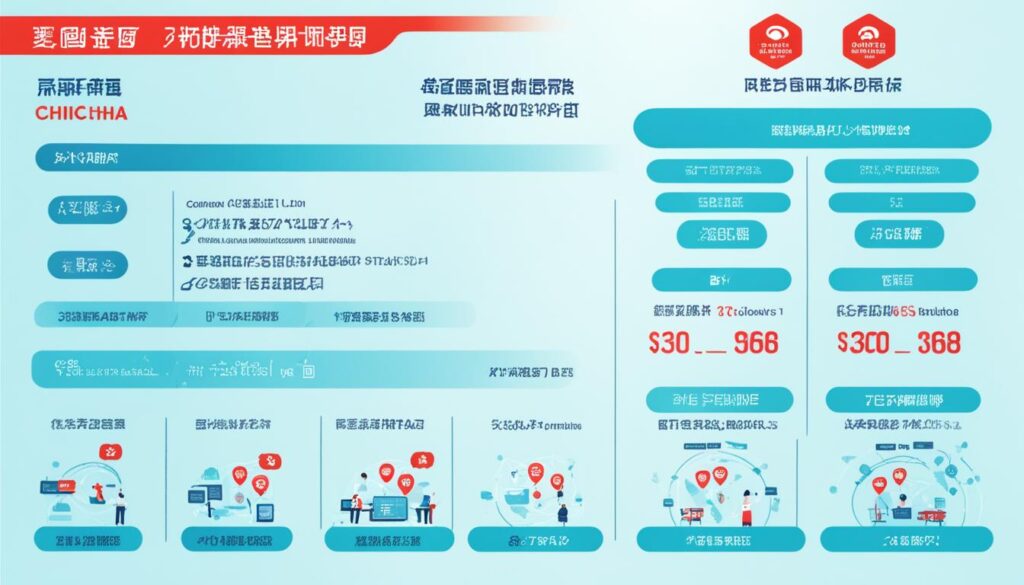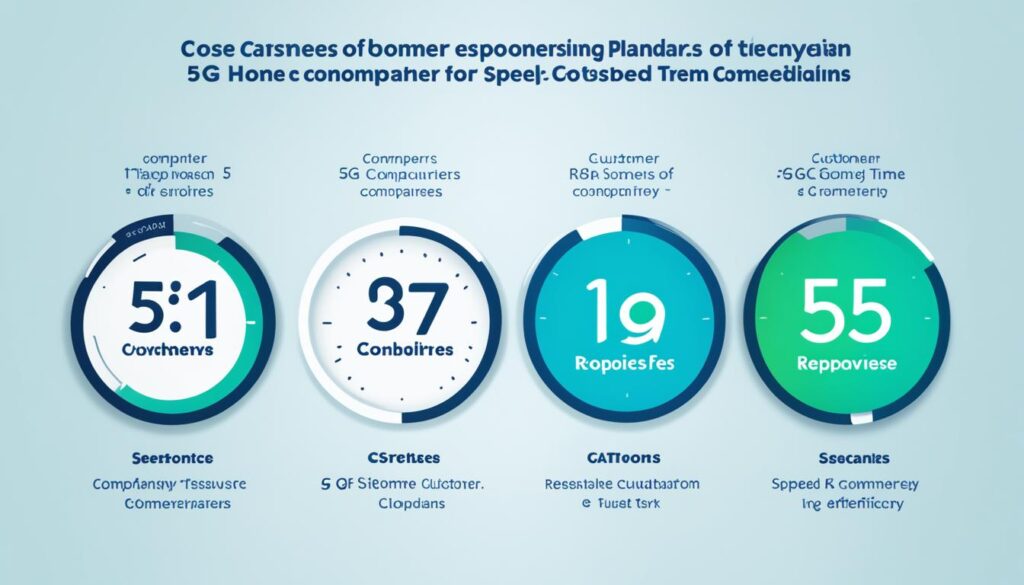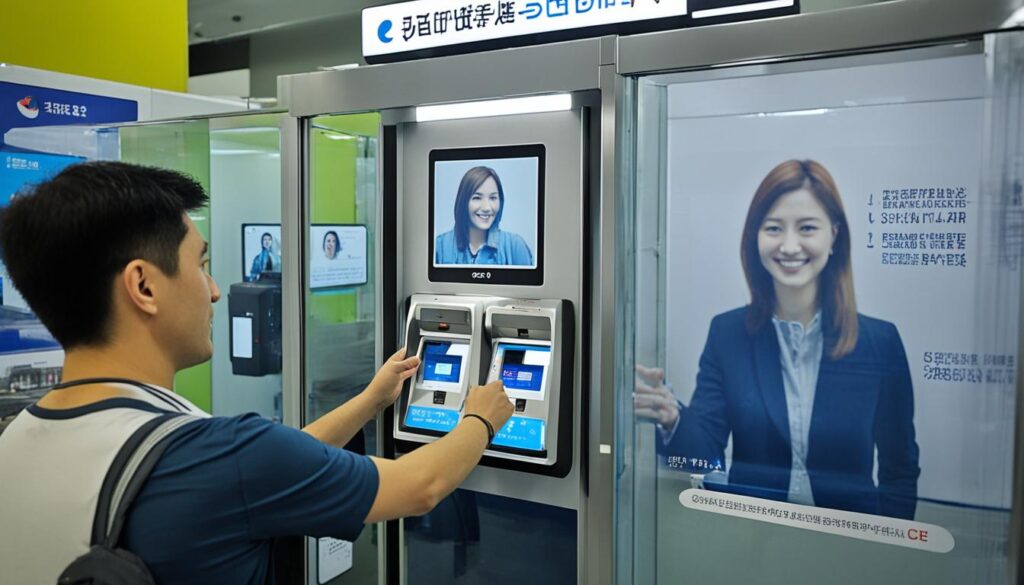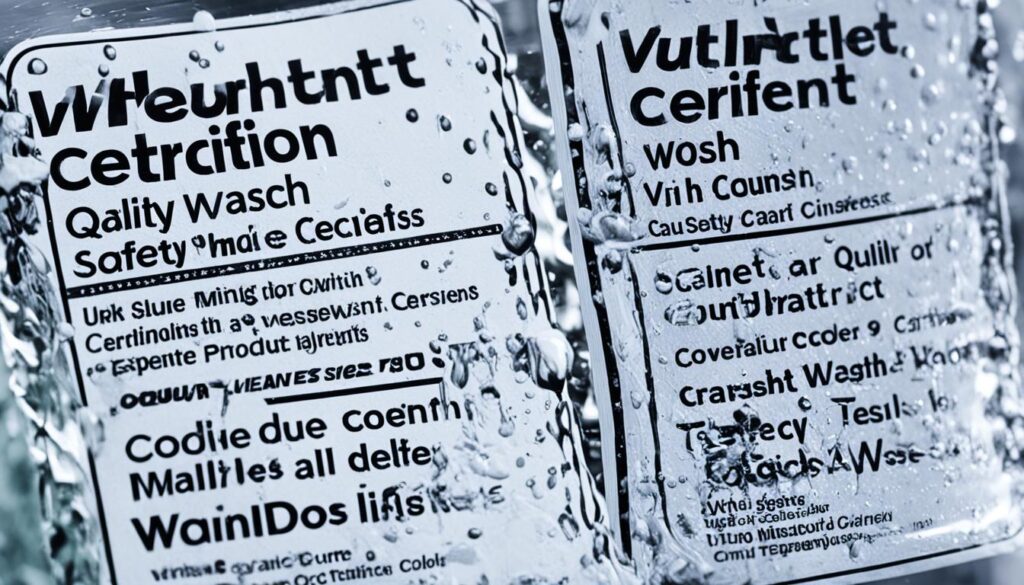身為一個現代家庭或企業, Telecombrother 寬頻報價 無疑是您關注的重點之一。究竟什麼樣的寬頻報價方案最符合您的需求和預算?不同網路供應商的服務水平如何?這些問題一直困擾著許多用戶。但現在,我們將利用大數據技術,為您解析寬頻報價市場的最新動態和用戶評價。
您是否曾好奇過,為何某些寬頻報價網路供應商的服務能贏得廣大客戶的認可,而另一些卻備受詬病?寬頻報價不僅關乎您的上網體驗,同時也映射了寬頻報價服務商的經營策略和客戶關懷程度。今天,我們就一起探討寬頻報價與客戶口碑的密切關係。
關鍵要點
- 了解台灣寬頻報價市場的最新趨勢和用戶需求
- 比較不同網路寬頻報價供應商的價格和服務水平
- 分析影響寬頻報價的關鍵因素,如基礎設施投資、市場競爭
- 評估各種寬頻報價促銷活動和優惠政策的吸引力
- 掌握寬頻報價與客戶口碑之間的關聯
您是否知道,良好的客戶口碑可以為網路供應商帶來持久的競爭優勢?那麼,寬頻報價究竟如何影響客戶的感受和選擇呢?讓我們一起揭開這個問題的神秘面紗。
台灣寬頻報價趨勢和用戶需求分析
台灣的 寬頻報價 市場可以說是相當活躍。根據最新的 Digital 2024: TAIWAN 報告,台灣總人口數為 2,394 萬人,其中 94.9% 的民眾都有透過手機上網的習慣。平均每天上網 7 小時 13 分鐘,其中手機佔 56.6%。台灣用戶對於影音內容的需求特別強烈,平均每日花 1 小時 12 分鐘觀看串流平台。
寬頻報價-訂閱用戶對上網方案的期望和痛點
不論是年輕族群還是中老年人,都對 寬頻報價 和上網方案有著特殊的需求和期望。主要包括:
- 穩定的網速,足以支持影音串流、線上遊戲等需求
- 彈性的上網方案,可以因應不同場景和時段的上網需求
- 合理的價格,不要讓費用成為負擔
- 優質的客戶服務,能即時解決使用中的問題
不同年齡層和地區用戶對寬頻報價的接受程度
根據統計數據顯示,不同年齡層和地區的台灣用戶對 寬頻報價 的接受程度存在一定差異。年輕人對高速穩定的網路需求較強,而中老年人則較偏好價格優惠的方案。此外,都會區和鄉鎮地區的用戶對 寬頻報價 的需求和接受程度也存在一些差異。
面對這樣的市場需求,各大 寬頻服務商都在不斷推出各具特色的 寬頻報價 和上網方案,致力滿足不同消費群體的需求。您作為用戶,希望從寬頻供應商那裡獲得什麼樣的 寬頻報價 和服務呢?
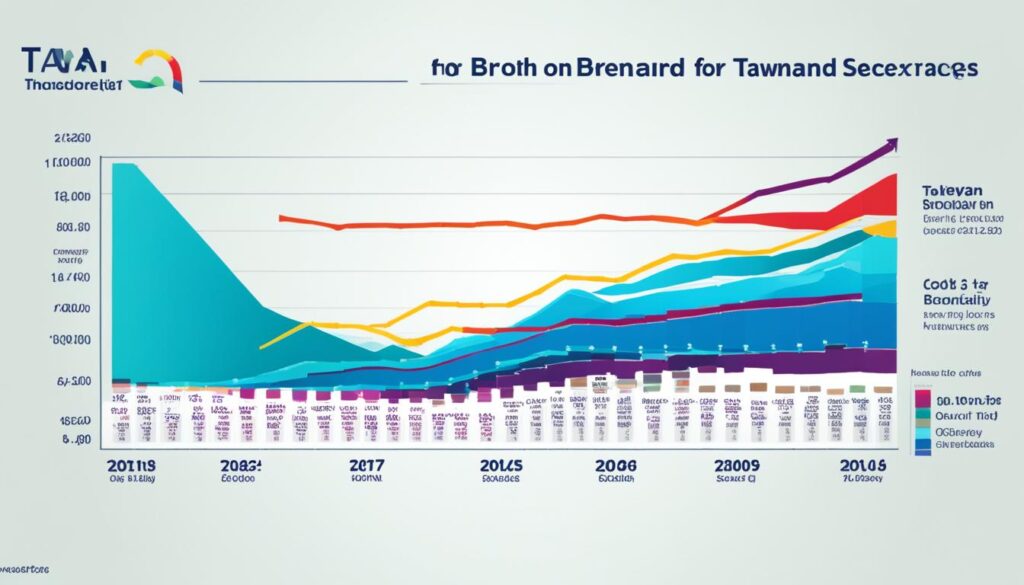
寬頻報價比較:不同供應商的價格和服務水平
在選擇寬頻上網方案時,您不僅要考慮價格因素,同時也要關注 ISP 供應商的服務水平。本節將深入分析台灣頂尖 ISP 供應商和中小供應商的寬頻報價和網絡覆蓋情況,以及用戶對他們服務的評價。
頂尖 ISP 供應商的寬頻報價和網絡覆蓋
台灣三大頂尖 ISP 供應商分別是電信集團、寬頻科技和光纖網絡。他們提供的寬頻報價從每月 NT$599 到 NT$1,299 不等,網路速度從 100Mbps 到 1Gbps 不等。這些頂級供應商在全台灣擁有廣泛的網絡覆蓋,能為用戶提供穩定可靠的寬頻服務。根據用戶評價,他們的服務水平也普遍較其他供應商出色。
寬頻報價-中小 ISP 供應商的價格策略和用戶評價
除了大型供應商,台灣也有許多中小型 ISP 供應商。他們通常採取差異化的價格策略,提供更具競爭力的寬頻報價。例如,一些中小供應商的寬頻月費只需 NT$399,但網速可能較慢,網絡覆蓋範圍也較有限。用戶評價顯示,這些供應商的服務水平參差不齊,有些客戶反映過慢的網速和較差的客戶服務。

總的來說,不同 ISP 供應商的寬頻報價和服務水平存在差異。在選擇最適合自己的寬頻方案時,不僅要比較價格,也要權衡供應商的網絡覆蓋範圍、上網速度和用戶評價等因素。
寬頻報價的決定因素及其對用戶的影響
對於Telecombrother的用戶來說,瞭解 寬頻報價的背後因素很重要。事實上, 寬頻報價的高低受到供應商的基礎設施投資、運營成本,以及整個市場的競爭格局和各家的市場佔有率等多方面因素的影響。這些因素最終都會反映在您所面臨的 寬頻報價水平上。讓我們一起深入探討這些關鍵因素,了解它們如何影響您選擇寬頻方案時的決策。
寬頻報價-基礎設施投資和運營成本的影響
Telecombrother供應商需要大量投資在寬頻網絡的建設和維護上,例如鋪設光纖線路、升級交換機設備等。這些基礎設施投資成本會直接影響到 寬頻報價。同時,供應商的日常運營成本,如人力、電力、租賃等,也會轉嫁到用戶身上,成為定價的一部分。因此,用戶需要瞭解這些成本因素,才能更好地評估和選擇適合自己的 寬頻報價方案。
寬頻報價-競爭格局和市場佔有率對定價的作用
台灣 寬頻報價市場競爭激烈,不同供應商都在努力爭奪用戶。大型供應商憑借規模優勢,可以提供相對較低的 寬頻報價;而中小型供應商則需要靠靈活的定價策略,爭取更多的市場份額。用戶可以比較不同供應商的 寬頻報價水平和服務,找到最適合自身需求的方案。
綜上所述,Telecombrother用戶需要深入瞭解 寬頻報價背後的各項因素,包括基礎設施投資、運營成本,以及市場競爭格局。只有充分認識這些因素,您才能做出更明智的 寬頻報價選擇,確保獲得物有所值的網絡服務。
寬頻報價促銷活動和優惠政策的吸引力
您作為一名資深電信消費者,肯定了解到各大供應商在爭奪用戶時都推出了各種 寬頻報價吸引措施。根據最新研究,目前最受消費者歡迎的推廣活動包括免運費(61.9%)、折扣優惠(43.7%)、簡單便捷的付款流程(39.8%)以及良好的用戶評價(30.4%)。
事實上, 寬頻報價供應商往往會提供免費安裝、首月優惠等優惠政策,希望能夠吸引更多新用戶。我們將仔細分析這些促銷手段對消費者的實際吸引力,探討其對用戶行為和決策的影響。
- 免運費: 消費者最為關注的推廣手段之一,能夠大幅降低用戶的總體投入。
- 折扣優惠: 各供應商會提供首月或長期的優惠折扣,以提高 寬頻報價的性價比。
- 簡單付款: 流暢便捷的線上支付體驗,減少用戶的操作障礙,增加轉化率。
- 良好評價: 其他用戶的正面評價有助於提升產品的信任度和吸引力。
總的來說, 寬頻報價供應商正在通過多種促銷手段不斷提升用戶的獲取和留存,為消費者帶來更加優質的上網體驗。我們將持續關注這一領域的最新動態,為您提供更精彩的內容分析。
「我們的目標是為消費者提供最具吸引力的 寬頻報價方案,滿足您的上網需求。」 – Telecombrother 市場總監
結論
在寬頻報價的市場競爭中,Telecombrother 深入分析了台灣用戶的需求趨勢和供應商的服務水平。從數據分析來看,「寬頻報價」已經成為用戶關注的熱點話題,各大ISP供應商也正在推出各種優惠方案吸引用戶。然而,光靠價格優惠已經無法滿足用戶不斷變化的需求。
為了在激烈的市場競爭中脫穎而出,Telecombrother 認為ISP供應商需要更深入地了解用戶需求,提供創新的寬頻服務。同時,供應商也須關注網絡口碑和用戶評價,通過大數據分析提升服務質量,贏得用戶的信賴。只有持續優化 「寬頻報價」 產品和服務,供應商才能在瞬息萬變的市場中穩住陣腳。
綜上所述,Telecombrother 相信未來台灣寬頻市場將呈現更加多元化的發展趨勢,「寬頻報價」 將成為供應商競爭的焦點。只有深耕用戶需求,不斷創新服務,ISP供應商才能在新一輪的市場競爭中脫穎而出,為用戶提供更優質的寬頻體驗。
FAQ
台灣寬頻市場的整體狀況如何?
根據最新的 Digital 2024: TAIWAN 報告,台灣總人口數為 2,394 萬人,其中 94.9% 的民眾都有透過手機上網的習慣。上網時長平均每天 7 小時 13 分鐘,其中手機佔 56.6%。台灣用戶對於影音內容的需求特別強烈,平均每日花 1 小時 12 分鐘觀看串流平台。
不同年齡層和地區的用戶對寬頻報價有什麼差異?
根據分析,不同年齡層和地區的用戶對寬頻報價和上網需求也存在一定差異,我們將深入探討這些差異。
台灣寬頻市場上主要的瀏覽器和社群平台有哪些?
根據數據分析,台灣寬頻市場上,Chrome 瀏覽器以 56.8% 市占率穩居第一,Safari 以 33.7% 緊追其後。在主要社群平台方面,LINE(90.9%)、Facebook(85.1%)和Instagram(68.1%)的使用率最高。
如何比較不同ISP供應商的寬頻報價和服務水平?
我們將比較台灣頂尖ISP供應商和中小供應商的寬頻報價及其服務水平,並分析用戶的評價情況。
哪些因素會影響寬頻報價的高低?
寬頻報價的高低受到多方面因素的影響,包括ISP供應商的基礎設施投資、運營成本,以及整個市場的競爭格局和各家的市場佔有率。這些因素最終都會反映在用戶所面臨的寬頻報價水平上。
消費者最看重什麼因素來選擇寬頻方案?
根據調查,目前最吸引消費者在線上購買寬頻方案的因素包括免運費(61.9%)、折價(43.7%)、簡易付款流程(39.8%)和用戶評價(30.4%)。
供應商都推出哪些促銷活動和優惠政策吸引用戶?
各大ISP供應商通常會推出各種促銷活動和優惠政策,如免費安裝、首月優惠等,以吸引新用戶。我們將分析這些措施對用戶的實際吸引力。



